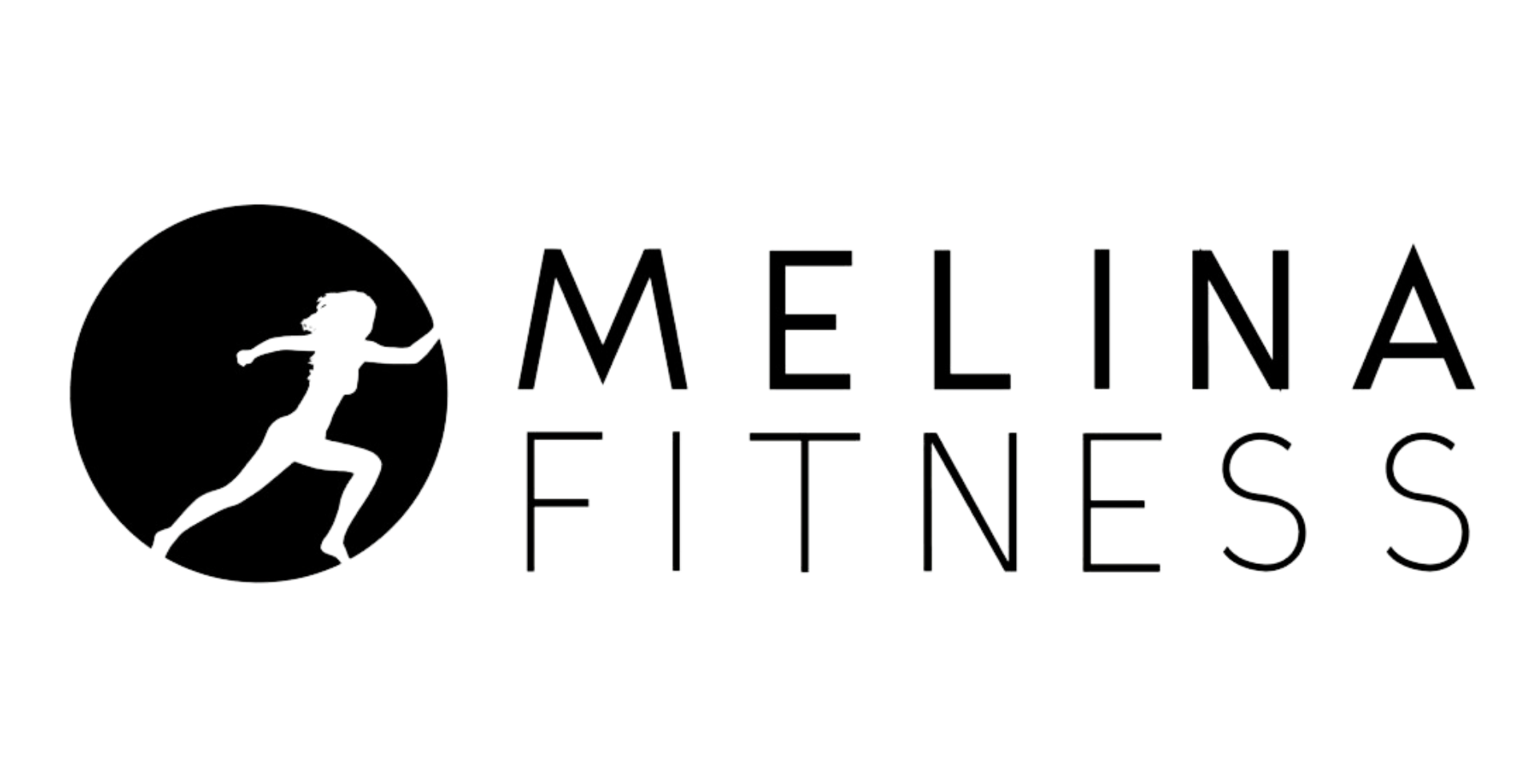
Not ALL Protein Powder is Created EQUAL!
PROTEIN DEFINED—
pro·tein /ˈprōˌtēn/ noun
- any of a class of nitrogenous organic compounds that consist of large molecules composed of one or more long chains of amino acids and are an essential part of all living organisms, especially as structural components of body tissues such as muscle, hair, collagen, etc., and as enzymes and antibodies. “a protein found in wheat”
- proteins collectively, especially as a dietary component. “a diet high in protein”
PROTEIN – we all know we need it, but the REAL why and HOW is often confusing. I’m going to break down this MACRONUTRIENT very simply, and leave you all with:
- HOW to incorporate more protein daily
- HOW to choose the BEST protein supplement.
- HOW this simple macronutrient can dial in your goals FAST.
You probably know and/or hear how protein is important when it comes to staying healthy and fit. And, you probably have even heard how this macronutrient can help manage your weight and body fat goals over every other nutrient we consume. I really want you ALL to fully understand that! Don’t skip your protein and make sure you find the right sources of protein for your personal goals. It doesn’t matter if you are vegan, vegetarian, pescatarian or have zero food restrictions, YOU NEED PROTEIN and can get sufficient grams daily by sustaining a proper diet. (*Remember a diet is simply what you eat)
So WHY more Protein? There are plenty of reasons, including:
Appetite control: Eating a high-protein diet seems to improve satiety.
Weight and body composition management: Higher protein intakes may help people eat less when they’re trying to lose fat, increase the number of calories burned through digestion (the thermic effect of food), and retain muscle during fat loss.
Muscle growth or maintenance: Keeping protein levels high, combined with exercise, helps people gain vital muscle mass and hang onto it over time, especially as they age.
Better strength: Higher amounts of protein combined with exercise can also aid in strength gains.
Improved immune function: Proteins are the building blocks of antibodies, and serve several functions in the immune system. People who are protein-deficient are more susceptible to viral and bacterial infections.
Faster exercise recovery: Higher protein intakes help to repair tissue damaged during exercise, as well as after injury.
HOW to incorporate more protein daily–
If you don’t eat a lot of whole protein food sources like meat, chicken or fish, then you need to incorporate a protein supplement. Having a simple protein shake with protein powder can help balance out your protein intake and can ensure proper weight maintenance whether it comes to building muscle or burning body fat. Finding the right protein supplement can totally get confusing so I want to give you just a few tips on what to look for when shopping for protein.
- Make sure there is no raw material testing
- Look for artificial flavoring or fillers.
- Make sure it doesn’t contain soy.
- Look for added sugar. (BIG NO NO!)
- Make sure it has a HIGH biological value.
- Make sure it has ALL essential amino acids.
- Look at sugar alcohol
- Avoid added flavoring
- Avoid thickening agents
- RESEARCH BRANDS!
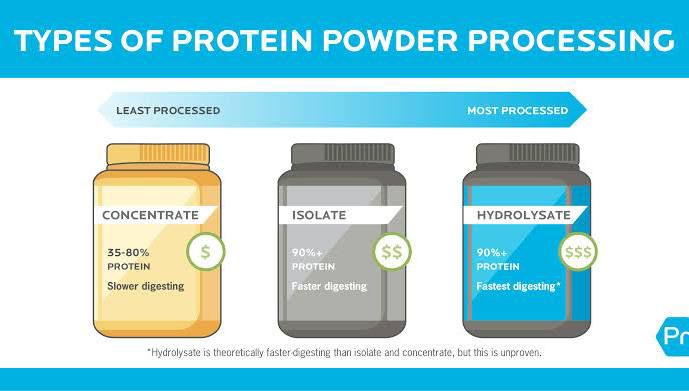
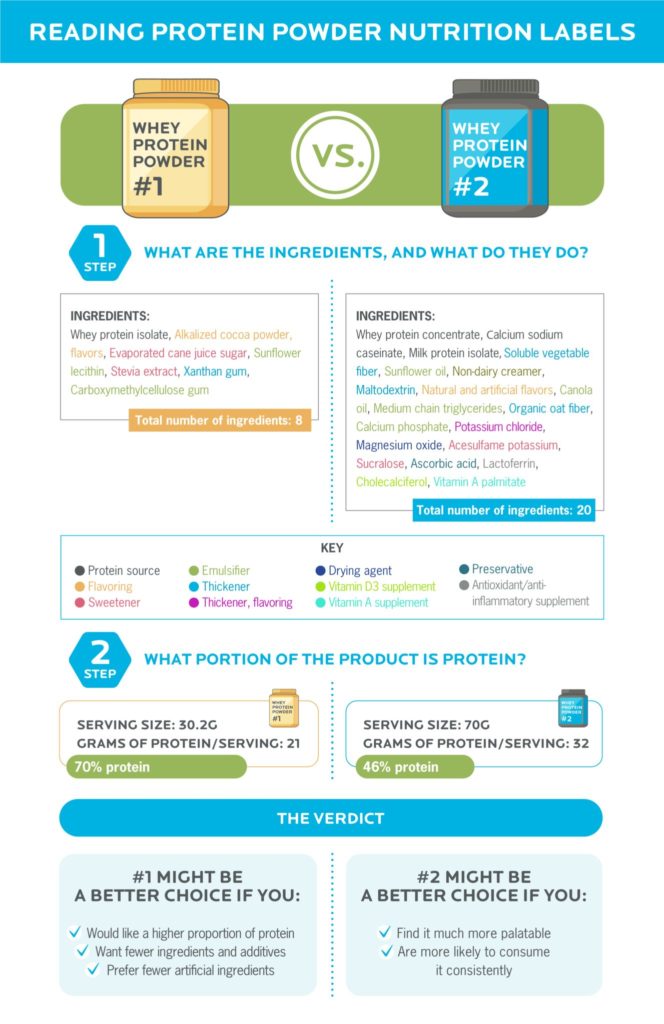
Why use protein powder?
While whole-food protein is best when establishing a healthy diet, it’s just not always possible to get all the protein you need from whole foods. Ultimately, there are two big reasons you might want to consider adding protein powder to your diet.
Reason #1: Convenience: In some cases, people just don’t have time to (or simply don’t want to) sit down and eat a whole-food meal. This might happen when a person is:
- Very busy with work, caregiving, or other responsibilities
- Aiming for a very high protein requirement and doesn’t have time/desire to eat that much whole-food protein
- Transitioning to a plant-based diet and still figuring out their preferred whole-food protein sources
- Trying to meet protein goals while traveling or with limited food options
Reason #2: Appetite: Other times, people don’t feel hungry enough to eat the amount of protein they need. This might happen when a person is:
- Trying to gain weight and is struggling to increase their intake
- Sick and has lost their desire to eat
- Aiming to improve athletic performance and recovery, but doesn’t feel hungry enough to meet their nutrient needs
How does protein powder fit into your diet?
Lastly, you’ll want to think about how your protein powder fits into the overall context of your diet.
Be mindful of your goal. Here’s what you might want to consider depending on your goals, and what you’re hoping to get out of your protein shake.
► Weight loss / fat loss: If you’re looking to lose fat, pay attention to the protein-to-calorie ratio of your protein powder. The best protein powder for weight loss will be higher in protein and lower in carbs and fat, since the latter two macronutrients will be more satisfying coming from whole foods.
► Muscle gain: To put on muscle, look for a protein powder with a high protein-to-calorie ratio, as the main goal is to consume adequate overall protein. If you’re struggling to get adequate overall calories, a protein powder that’s also rich in carbohydrates can be helpful around workouts.
► Weight gain: For those who are looking to gain any type of weight—most often this is due to illness that reduces appetite—consider powders that are high in protein, carbohydrates, and fat. Particularly if you won’t be getting much other nutrition, it’s important to get all three.
► Meal replacement: If you plan to use your protein shake as a meal replacement, it’s important to get some other nutrients in there, too. While there are protein powders that come with additional nutrients built-in, we recommend making your own Super Shake instead by incorporating fruit, vegetables, a source of healthy fats, and possibly more. That way, you get all the whole-food benefits of these ingredients.
► Recovery/athletic performance: There are a variety of suggested ratios of carbohydrate and protein intake post-exercise to maximize recovery, but there isn’t much evidence showing any particular ratio is optimal. A protein powder with a 2:1 or 3:1 carbohydrate-to-protein ratio might be beneficial, but ultimately your total macronutrient and calorie intake for the day is the most important determining factor in athletic recovery. If you’re an athlete competing in multiple events in one day, consuming a beverage with 30 to 45 grams of carbs, 15 grams of protein, and electrolytes (sodium and potassium) in 600 mL (20 ounces) water for every hour of activity could help with recovery and performance.
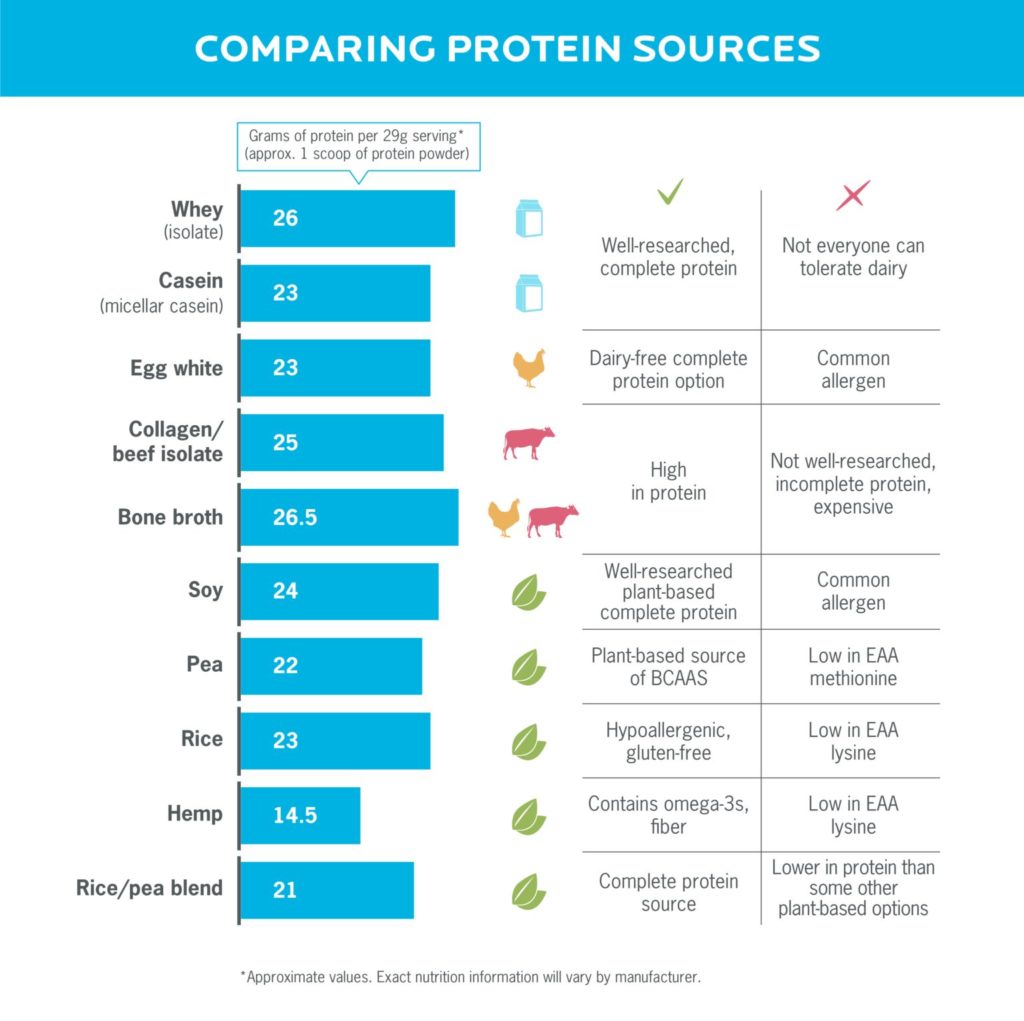
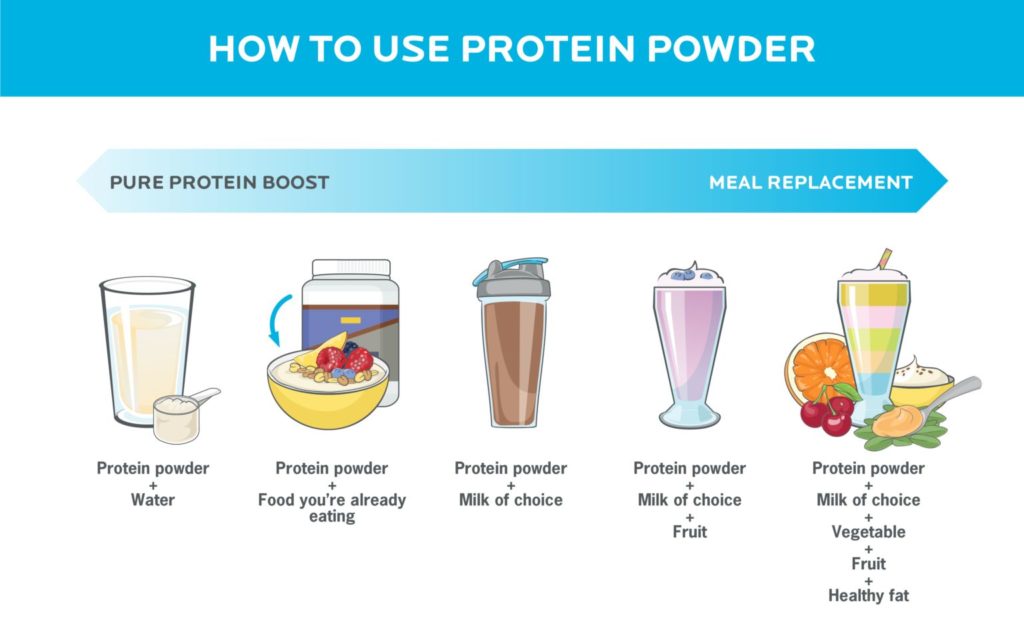
I hope this BLOG HELPED answer questions in regards to protein supplementation. I’ve been working with supplements for nearly 2 decades, and I 100% believe in the quality of certain nutrients when it comes to finding the right brand to fit your goals and needs. Please make sure that you check out my supplement guide and recommendations when it comes to a incorporating essential nutrients into your meals daily.
Remember if you have any questions or any times please don’t hesitate to direct message me! My goal is to make sure that every person I work with is happy and confident with the results they are getting. And sometimes it may just be a matter of incorporating a simple supplement like protein to hit your goal.


